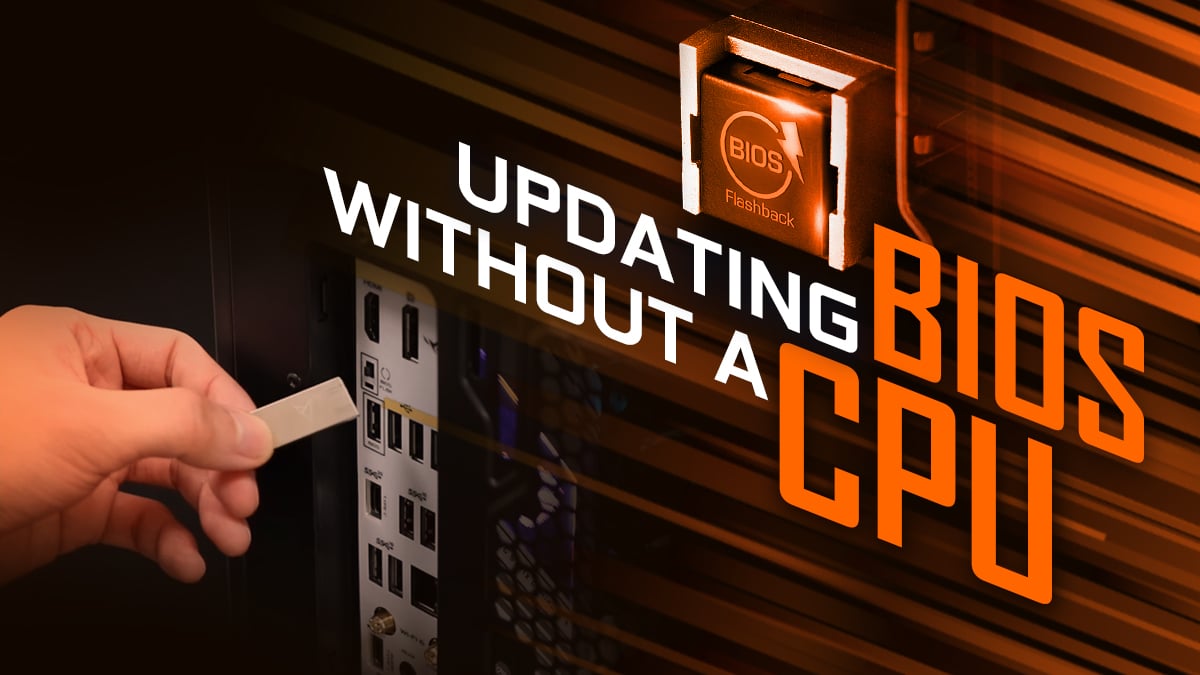How Long Does It Take to Update Bios
The process of updating a computer’s BIOS can take anywhere from a few minutes to several hours, depending on the specific BIOS and the update method. In most cases, updating the BIOS is a relatively simple process that can be completed without any major issues. However, it is important to note that there is always a risk of data loss or corruption when updating the BIOS, so it is important to create a backup of all important files before proceeding.
Updating your BIOS can be a scary prospect, because if something goes wrong, it could render your computer unusable. But don’t worry! In this blog post, we’ll walk you through the process of updating your BIOS step by step.
The first thing you need to do is check which version of BIOS you have. To do this, restart your computer and press F2 or Del when it starts up. This will take you into the BIOS setup utility.
From here, look for the “Version” field and note down the number that’s listed there.
Now that you know which version of BIOS you have, it’s time to update it. The first thing you’ll need to do is download the updated BIOS file from your computer manufacturer’s website.
Once the file has been downloaded, unzip it and save it to a safe location on your computer.
Next, restart your computer and press F12 when it starts up. This will take you into the boot menu where you can select which drive or device to boot from.
Select the option that says “USB Flash Drive” or “External Device” and press Enter.
At this point, your computer should boot from the USB flash drive or external device and display a list of options on how to proceed with the update process. Select the option to Update BIOS from File and browse for the updated BIOS file that you downloaded earlier.
Once found, select it and follow any prompts that appear on screen to complete the process—this typically just involves pressing Enter once or twice as everything else is done automatically in most cases these days .
How Long Does Bios Update Take Windows 11
Bios updates are one of the most important things you can do to keep your computer running smoothly. They can improve compatibility with new hardware and software, fix bugs, and improve performance. But how long does a bios update take?
For most computers, a bios update will take between five and ten minutes. This includes the time it takes to download the update, install it, and restart your computer. If you’re lucky, the whole process will be automated and you won’t have to do anything except wait for your computer to reboot.
However, some BIOS updates can take longer. If you’re updating from an older version of the BIOS or if your computer is having trouble installing the update, it may take up to an hour or more. In rare cases, a BIOS update can even fail, which could leave your computer unusable until you reinstall the old BIOS or find a workaround.
So why risk it? Unless there’s a specific reason to update your BIOS (like fixing a bug or adding support for new hardware), it’s usually not worth the hassle. If you do decide to go ahead with a BIOS update, make sure you have a backup plan in case something goes wrong.
How Long Does It Take to Update Bios Asus
It can take anywhere from a few seconds to a couple of minutes to update your BIOS. The process is usually pretty simple and straightforward. However, there are a few things you should keep in mind before updating your BIOS.
First, make sure you have the latest version of the BIOS that is compatible with your motherboard. Second, backup any important data on your computer just in case something goes wrong during the update process. Finally, follow the instructions provided by the manufacturer carefully to ensure a successful BIOS update.
How Long Does It Take to Update Bios Msi
How to Update Your MSI Motherboard BIOS
If you’ve ever wondered how to update your MSI motherboard BIOS, you’re in luck. In this guide, we will show you everything you need to know about updating your MSI motherboard BIOS.
Read on to find out more!
What is a BIOS?
Your BIOS (Basic Input/Output System) is the firmware that controls all of the hardware in your computer.
It’s what allows your computer to boot up and function properly. Over time, new features are added and bugs are fixed with updates to the BIOS. That’s why it’s important to keep your BIOS updated – so you can take advantage of the latest improvements and bug fixes.
How Often Should I Update My BIOS?
As a general rule of thumb, you should update your MSI motherboard BIOS whenever there is an update available from MSI. New versions of the BIOS are released periodically to add support for new products or fix bugs in existing functionality.
So if there’s a new CPU or graphics card that you want to use with your motherboard, chances are that you’ll need a newer version of the BIOS before it will work properly. Alternatively, if you’re having problems with your current setup, updating your BIOS may solve them. In either case, it’s always a good idea to check for updates regularly – even if things seem to be working fine.
How Do I Update My MSI Motherboard BIOS?
Now that we’ve answered the question “what is a bios” its time cover “how do i update my msi motherboard bios?”. The process for updating your MSI motherboard bios is actually very simple and only takes a few minutes using their handy Live Update tool which can be found pre-installed on every recent model msi board (you can also download it from their website).
Here’s a quick step-by-step guide: 1) Firstly make sure that any important files on your computer are backed up as there is always a small chance something could go wrong during the flashing process (although this is very unlikely). 2) Next launch Live Update and select ‘Bios’ from list of available updates (it will usually be near top). 3) Click ‘install’ and then ‘agree’ when prompted after reading through any release notes etc 4) Sit back and relax while LiveUpdate does its thing! 5) Once complete restart Windows 7/8/10 64-bit PC & Enjoy 🙂 Thats it!
Why is My Bios Update Taking So Long
If you’re wondering why your BIOS update is taking so long, there are a few possible explanations. First, it’s important to note that updating your BIOS can be a risky process, and if something goes wrong, it could render your computer unusable. That’s why it’s important to make sure you have a backup plan in place before proceeding.
Another reason why your BIOS update might be taking a while is because you’re using an older computer. The process of flashing a new BIOS onto an older motherboard can take longer than on newer hardware. This is due to the fact that older computers often use slower processors and less reliable flash memory chips.
Finally, the size of the update itself could be causing the delay. If you’re downloading a large BIOS update file, it could take some time to complete the download and install process.
Asus Bios Update Taking Forever
If you’ve been using a PC for any length of time, you’ve probably had to update your BIOS at some point. A BIOS update is a software program that updates the code stored in the BIOS, which controls how your computer starts up and functions. While most BIOS updates are relatively small and quick to install, some can take forever – especially if you’re updating from an older version or have a slow internet connection.
Asus is one of the largest PC manufacturers in the world, so it’s not surprising that they offer regular BIOS updates for their computers. However, some users have reported that updating their Asus BIOS can take an unusually long time – even several hours in some cases.
There are a few possible explanations for why this might be happening.
One possibility is that you’re downloading a large update file; Asus’ support page says that some updates can be as large as 8MB. If your internet connection is slow or unreliable, it could take a while to download such a large file.
Another possibility is that the update process is taking longer than usual because your computer’s CPU is busy with other tasks.
This isn’t necessarily a problem – just make sure to close any unnecessary programs before starting the update process. You may also want to try temporarily disabling any antivirus or security software you have running; sometimes these programs can interfere with installation processes like this one.
Finally, it’s also possible that there’s something wrong with the Asusupdate utility itself.
If you’re having trouble updating your BIOS, try downloading and installing the latest version from Asus’ website; this may fix the problem.

Credit: www.cgdirector.com
Why Does Bios Update Take So Long?
When you update your BIOS, it is important to do it correctly so that you don’t cause any problems with your computer. The process can be time-consuming, but it is important to make sure that you follow the instructions carefully and don’t rush through the process.
One reason why updating your BIOS can take a while is because you need to download the update from the manufacturer’s website.
Depending on your internet connection, this could take some time. Once the download is complete, you will need to unzip the file and then run the update program. This process can also take a few minutes depending on your computer’s speed.
Once the BIOS update program starts, it will ask you to confirm that you want to install the update. Make sure that you read all of the instructions carefully before proceeding. Theupdate process could take several minutes or longer depending onthe size of the update and your computer’s speed.
Once it is finished,you will need to restart your computer for the changes to take effect.
Can a Bios Update Take Hours?
No, a BIOS update cannot take hours. The longest a BIOS update should take is a few minutes, and that’s only if there’s a lot of data to process.
What Happens If a Bios Update is Interrupted?
If a BIOS update is interrupted, there is a risk of the BIOS becoming corrupted. This can lead to instability and potential data loss. If you are in the process of updating your BIOS and the power goes out or the update is interrupted for any reason, it’s important to restart the update process from the beginning to avoid any issues.
Is It Ok to Skip Bios Update?
When it comes to your computer’s BIOS, there are a few different schools of thought in regards to updating it. Some people believe that you should never update your BIOS unless there is a specific reason to do so (usually to address a hardware compatibility issue or to add new features), while others believe that you should always keep your BIOS up-to-date in order to get the most out of your machine. So, which camp is right?
As with most things in life, there is no single correct answer. It really depends on your individual circumstances. If you are someone who likes to stay on the bleeding edge of technology and are constantly upgrading your components, then it makes sense to also upgrade your BIOS when new versions become available.
This way, you can be sure that all of your components are compatible with each other and that you’re getting the most out of them.
On the other hand, if you don’t upgrade your components very often and aren’t particularly interested in taking advantage of the latest and greatest features, then there’s no need to regularly update your BIOS. In fact, if everything is working fine, then updating your BIOS could potentially introduce new problems (although this is fairly rare).
So, ultimately, whether or not you should update your BIOS is up to you. Just weigh the pros and cons carefully before making a decision either way.
Do You REALLY Need To Update Your BIOS?
Conclusion
The process of updating your BIOS can vary depending on the make and model of your computer, but it is generally a straightforward process. In most cases, you will need to download the BIOS update from the website of your computer’s manufacturer. Once you have downloaded the update, you will need to run it on your computer.
The process usually takes less than 5 minutes to complete. After the BIOS update is installed, you should restart your computer to ensure that the changes take effect.










